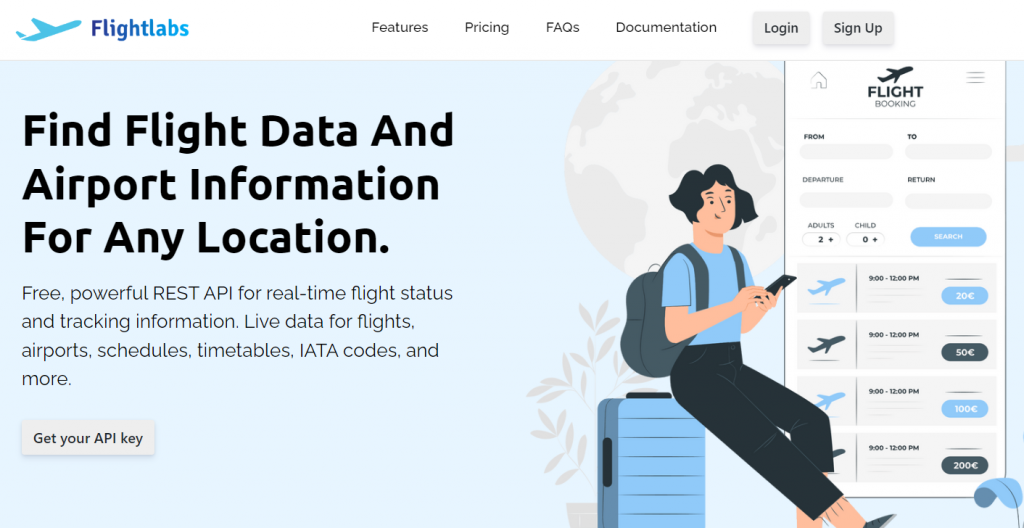If your daily work involves flight information, then you need to know why APIs might suit your business.
Bangkok is the main capital of Thailand and a hub for tourism as many airlines operating in Southeast Asia connect there. As the political, economic, cultural, gastronomic, and spiritual capital of the country, it has both the classical and cultural charm that pervades the entire country and modern conveniences, sometimes shown to the traveler in a seemingly chaotic manner, but always with that friendly smile, the hallmark of Thai hospitality.
Many tourists who travel to Bangkok are immediately overwhelmed by the sheer size of the city and its wide variety of tourist options and attractions, after two centuries of rapid growth since King Rama I, the first king of the current Chakri dynasty, founded the city in 1782. Since that day, Bangkok has grown and developed into a 21st-century cosmopolitan city of more than 10 million people.
Flights to Bangkok land at Suvarnabhumi Airport, which is also known as Bangkok International Airport. Dozens of airlines and hundreds of daily flights operate through the facilities of this airport, such as Emirates, Aeroflot, Air France, KLM, Air China, among many others. There is a significant proportion of low-cost flights covering medium-haul routes within Southeast Asia and the same extension of Thailand.
As you can imagine, the role of technologies in airport logistics is key to a dynamic that is becoming increasingly complex. This is because it is interconnected with airlines, service providers, and the users and travelers themselves. Flight APIs are indispensable tools that are becoming increasingly popular.
Why Flight APIs Are Vital To Access Airport Data?
Flight APIs are vital for accessing airport data because they provide a convenient and efficient way for companies and individuals to retrieve information about flights, airports, and the aviation industry. These APIs can be used for a variety of purposes, including tracking flight status, searching for flights and flight deals, and obtaining real-time data about airport conditions and services.
One of the main benefits of using a flight API is that it allows users to quickly and easily access a vast amount of data from multiple sources. For example, a flight API might provide access to information from multiple airlines, airport authorities, and other industry players, making it easy to get a comprehensive view of the aviation landscape. This can be particularly useful for businesses that rely on flight data to make informed decisions, such as travel agencies, airlines, and airport operators.
In addition to providing access to a wealth of data, flight APIs also offer a number of other advantages. For example, they can be used to automate processes, such as booking flights or checking flight status, which can save time and reduce the risk of errors. They can also be integrated into other systems, such as travel booking websites or mobile apps, making it easy for users to access the data they need. Overall, flight APIs are a valuable tool for anyone looking to access accurate and up-to-date information about flights and airports.

More About FlightLabs
FlightLabs is a company that provides a range of flight data and aviation-related services through its API platform. Their API allows users to access a wide variety of data such as flight schedules, flight status, airport information, and aircraft data such as IATA and ICAO codes. You can integrate this information into your platform and offer a unique experience. It even has an endpoint called “Best Flight” that retrieves the best available flight for the user.
FlightLabs also offers consulting services for companies that want to use its API and access other aviation-related data to improve their operations. It’s a very accessible API as it works with most programming languages – you’ll have no trouble getting started! Overall, FlightLabs is a comprehensive resource for anyone looking to access flight data and other aviation-related information.


